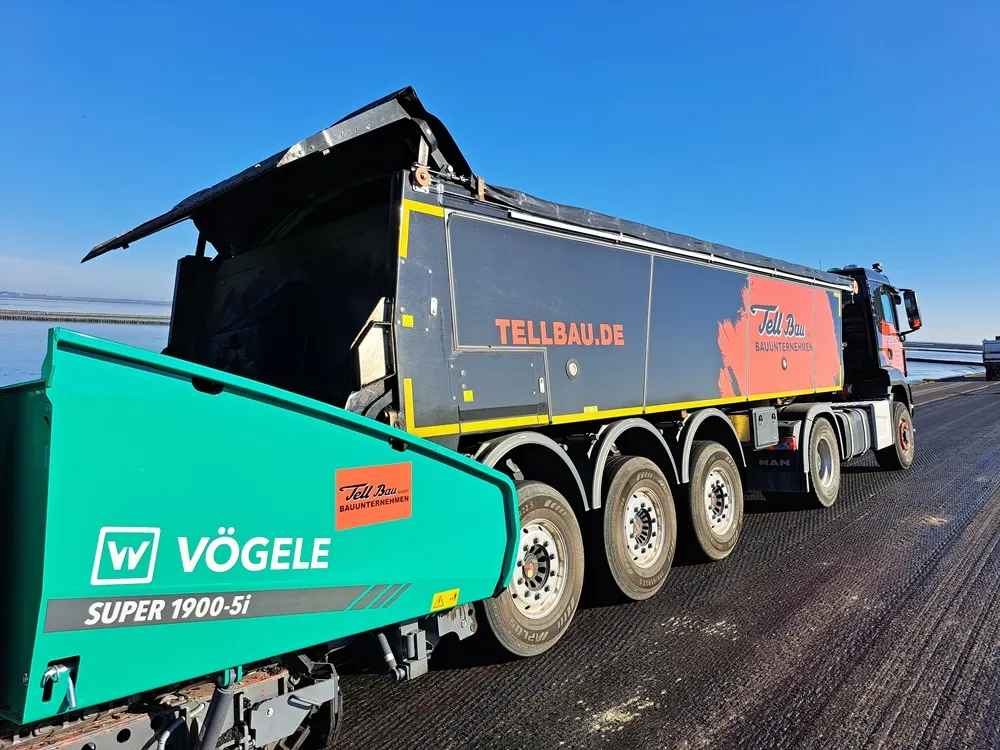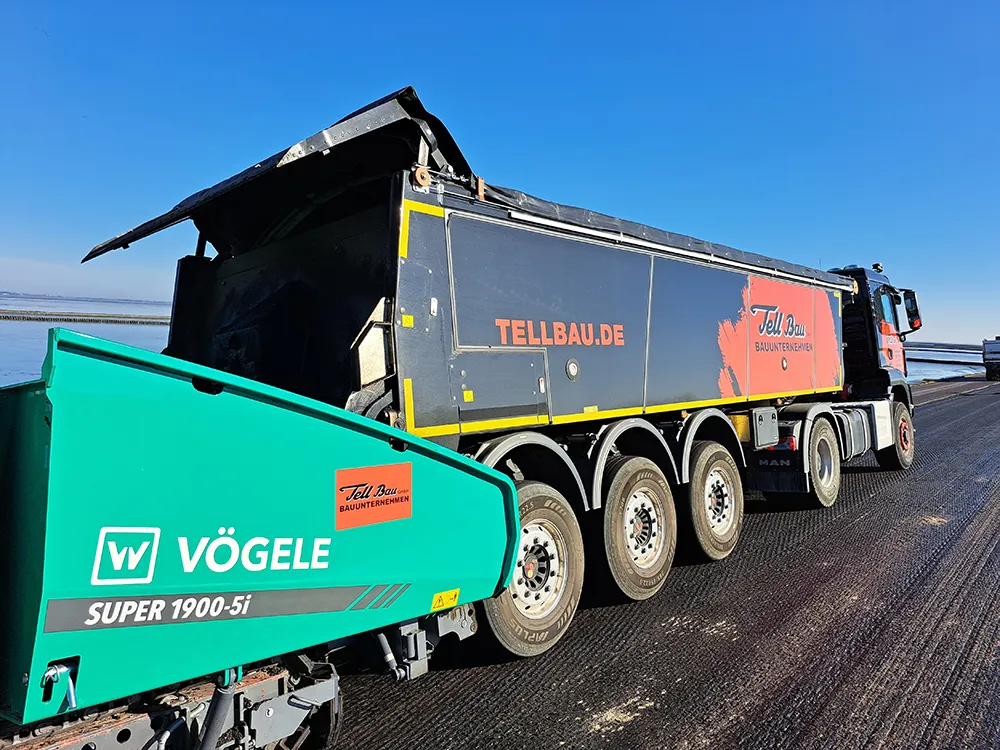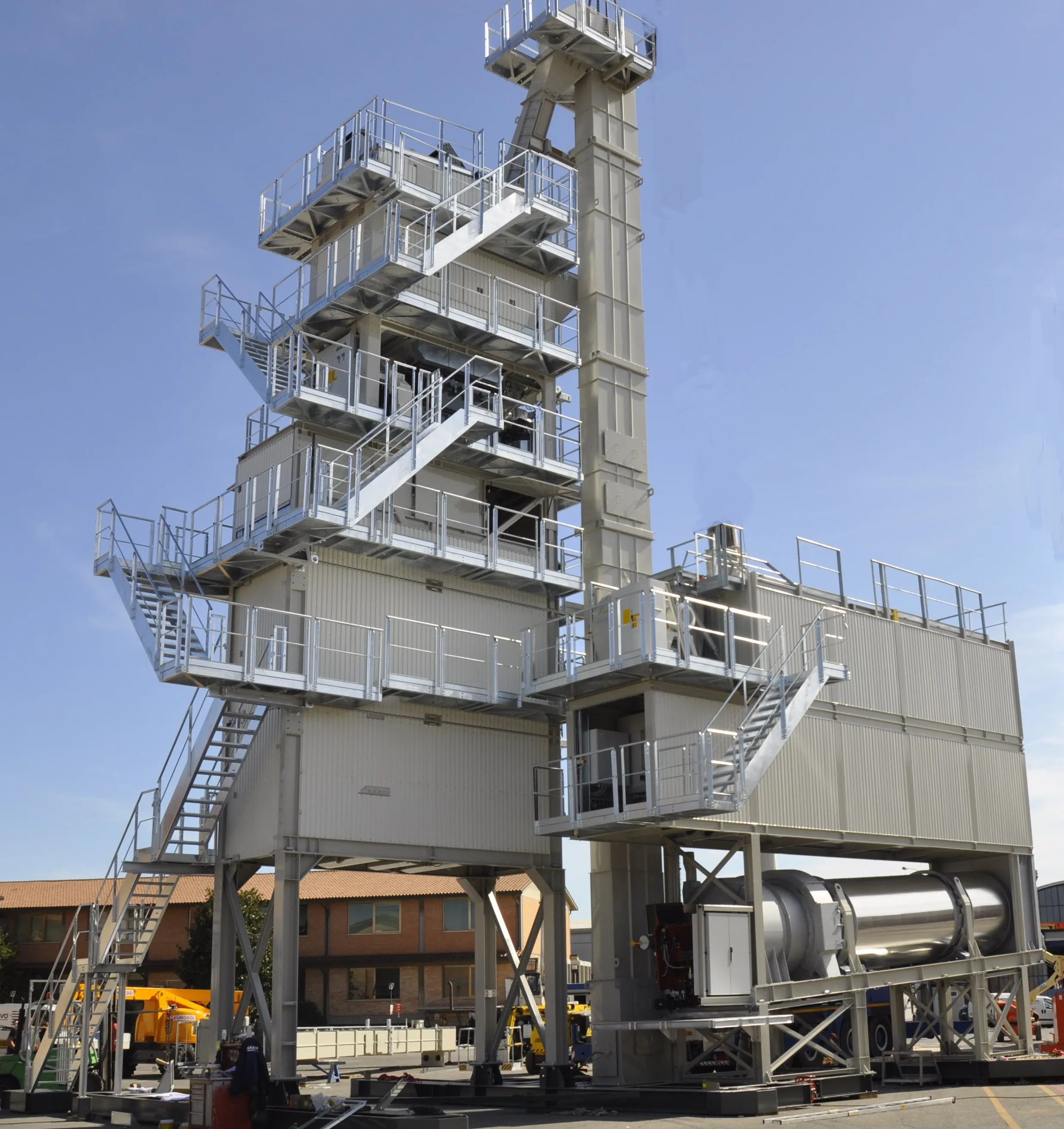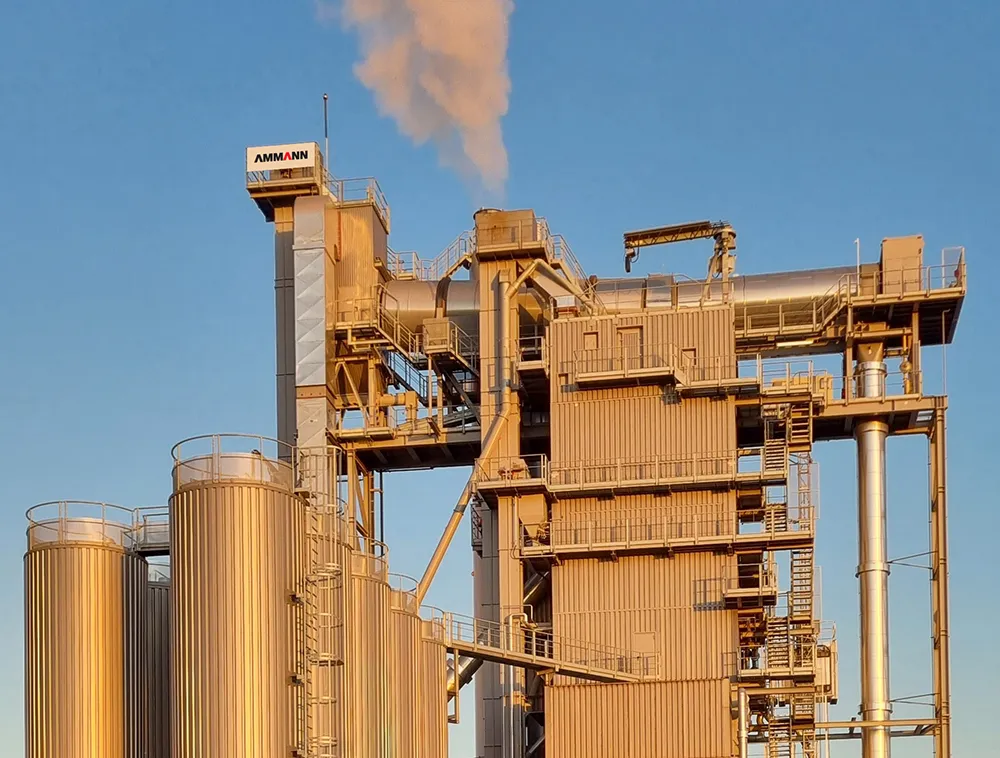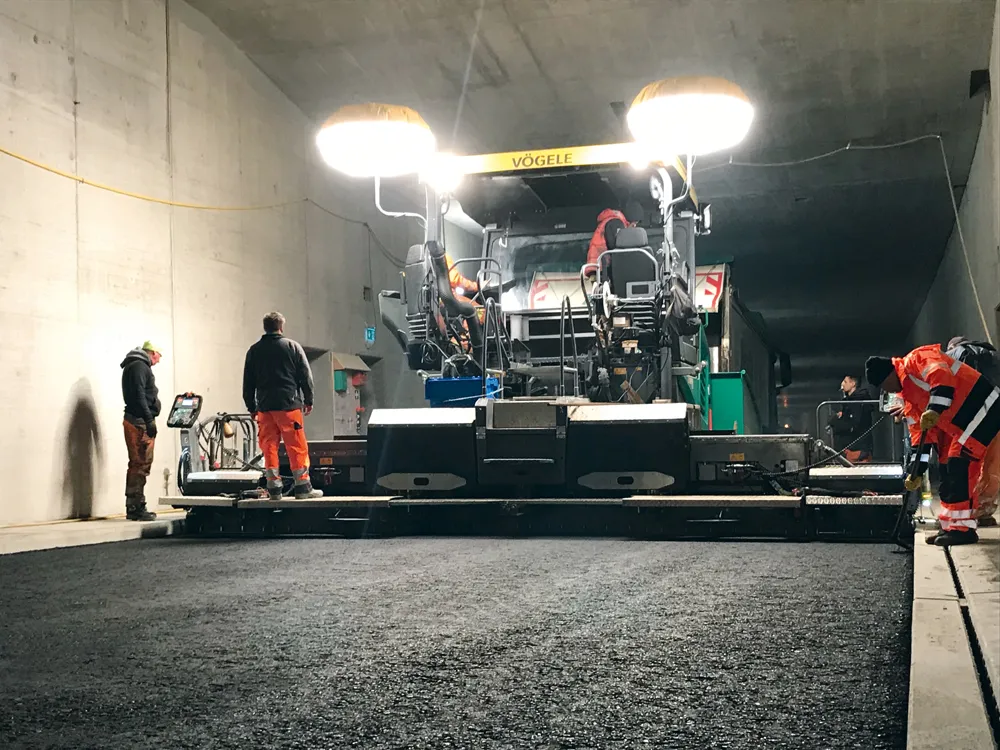
To minimise emissions, the contractor employed machines with diesel particulate filters and reduced-temperature asphalts. Using Vögele pavers and Hamm rollers, the consortium handling the work, which comprised Schleith and Züblin, was able to meet the requirements and pave the mix efficiently and in high quality. The road tunnel work forms part of a wider project to improve the centre of Karlsruhe. What was previously a wide road for through traffic is being transformed into a public space for pedestrians, with a landscaped tram track and an avenue of trees featuring cycling facilities. An underground train line is being built while through traffic is being diverted into a 1.6km road tunnel.
The client Karlsruher Schieneninfrastruktur-Gesellschaft (KASIG) wanted to minimise exposure to exhaust fumes for the paving team surfacing the dual tunnel bores of 5.3m and 6.8m width respectively. Only construction machines fitted with diesel particulate filters were allowed to work in the tunnel. The use of low-temperature asphalts was also specified as their paving temperature is 30°C lower than hot asphalt, reducing vapours and emissions as well as exposure to heat. Lower temperature asphalts also have a high resistance to deformation and important advantage for the tunnel with its anticipated heavy traffic volumes.
This choice of mix presented several challenges. Special waxes were used to optimise compaction, even at low temperatures, while the mix had to be paved and compacted as quickly and smoothly as possible. The contractor, Martin Paschmann Asphaltbau, used two SUPER 1800-3i pavers from Vögele and three Hamm compactors: a DV+ 90i VT-S-type combination roller, a DV+ 70i VV-S tandem roller and an HD 14i VO compact roller.
Efficient paving was crucial and the pavers achieved high laydown rates, while also delivering a quality mat. A key benefit was the heated centre auger bearing box, patented by Vögele. Located where the mix drops onto the auger, this helps ensure that the surface was heated evenly while no material stuck to it.
The AB 500 and AB 600 extending screeds used feature tamper and vibrators, which allowed the pavers to achieve a high degree of pre-compaction, reducing the number of roller passes required. The
ErgoPlus 3 system on the pavers helped to boost paving efficiency and quality as the more viscous reduced-temperature asphalt had an impact on the compaction process. Meanwhile, the automatic functions for the AutoSet Plus control system allowed the paver operator to save the parameters once they had been used. These were then reused for the next section of the project.
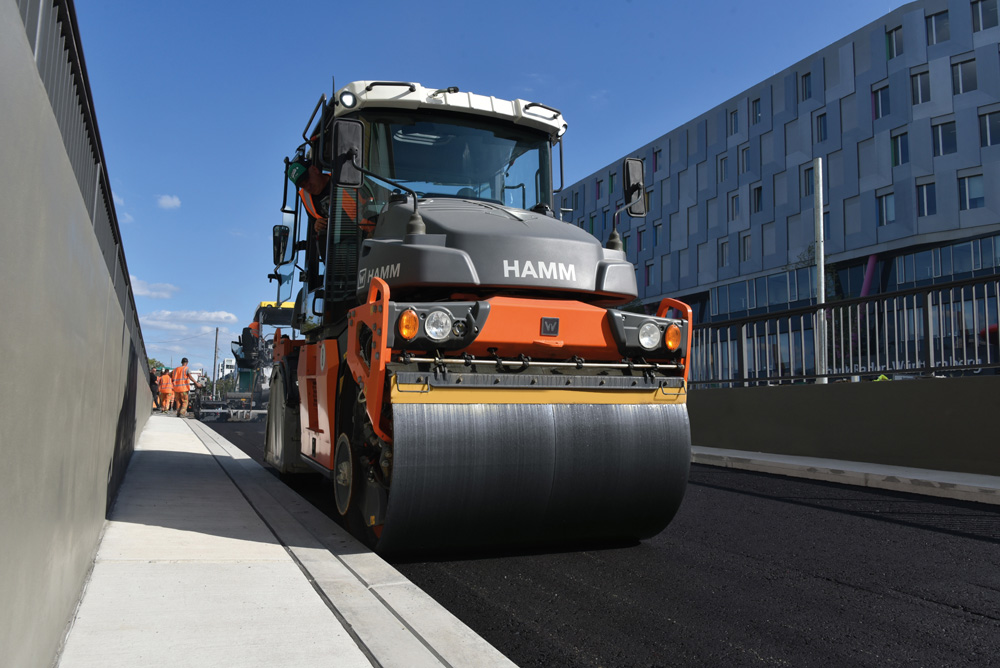
The contractor commented that compared to paving hot, the compaction time is critical as the window available for achieving final density is shorter using reduced-temperature asphalt. This meant that the compactors had to work close to the paver and in short, regular runs.
Using a fleet of compactors comprising tandem rollers and combination rollers, thermal aprons proved helpful to prevent the tyres cooling down quickly. The tunnel bores were paved with asphalt in two sections. For the first short section, the firm adapted the paving process and rolling patterns to suit the ease of compaction. This different way of working was necessary as the reduced-temperature asphalt could be worked for a while and then would suddenly become hard, making full compaction difficult.
The client specified medium-weight rollers for the first pass to compact the combined base and binder courses. A 9tonne Ham DV+ 90i VT-S-type combination roller first used its pneumatic tyres to compact the mix, which is initially susceptible to pushing, generating a dense structure. The drum then ensured evenness. With the roller approaching the paver at an angle, this avoided corrugation. Meanwhile, the traction control system allowed the pneumatic tyres to knead and work the mix without pushing it or tearing it up.
Final compaction was completed by a 4.5tonne HD 14i VO tandem roller and a DV+ 70i-VV-S tandem roller, with the reduced time window meaning that compaction had to be carried out quickly.


